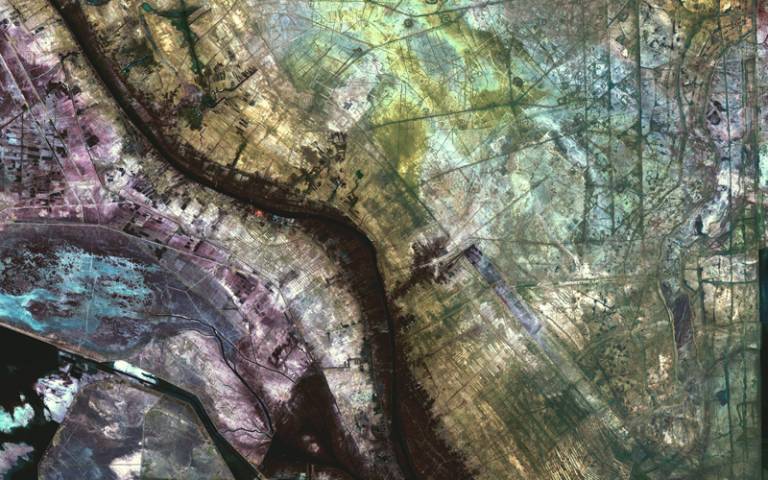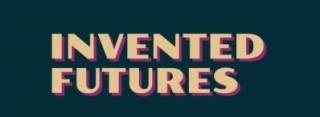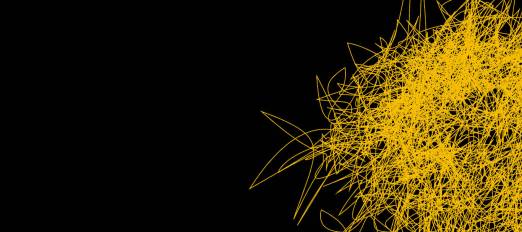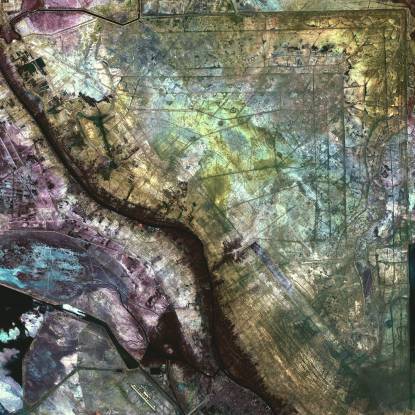Invented Futures Lab: Common and Uncommon Futures
15:00 - 17:00

What kind of knowledge, systems and capabilities do we need to imagine and build alternative futures?
In ‘Common and Uncommon Futures’, an Invented Futures Lab produced for the Being Human Festival 2022, we will go through a series of extracts, writing prompts, provocations to ask key questions:
- What is a common future?
- How does the Anthropocene unite geological and local futures?
We will place objects, texts and our own opinions alongside each other in a way that creates a generative, archival, imaginative space, going after Anna Tsing’s call “to look around rather than ahead”.
We will be guided by a wide range of sources, prompts and tools for thinking, taking inspiration from essayists and storytellers like Sylvia Wynter, Matthew Escobar, Zora Neale Hurston and Ursula Le Guin.
Whether you are interested in a geological understanding of the Anthropocene, want to question the political beginnings of building futures, consider the impending climate apocalypse, or the wayward thread that pulls them all together, this is a workshop where we can speculate and imagine together. Whatever your starting point of knowledge.
What is an Invented Futures Lab?
Invented Futures Lab is a workshop in response to ideas presented in the performance ‘Notes to Future Worlds from a Common Past’, premiered at the Grant Museum of Zoology on 10 November 2022. It is part of Being Human Festival 2022, led by the School of Advanced Study, University of London in partnership with the Arts and Humanities Research Council and the British Academy. The workshop also responds to themes in UCL’s current exhibition ‘Objects of the Misanthropocene’.
The workshop is facilitated by Maria Leonard, who is the director of Invented Futures and is currently a visiting lecturer at University of the Arts Berlin.
Based at Spike Island, the Invented Futures platform has collaborated with the Centre for Research in the Arts, Humanities and Social Sciences at Cambridge, the Centre for Global Knowledge Studies, Bristol Digital Futures Institute (Bristol University); University College London; and Birkbeck. Invented Futures has curated programmes at the School of Activism 2.0; Imagine! Festival of Ideas and Politics Belfast 2022; York Festival of Ideas 2022; Bristol Technology Festival and more.
Please note you do not need to have attended the performance to participate in this workshop. The workshop is a free space to imaginatively discuss ideas about our planetary future(s).
What is the Anthropocene?
The Anthropocene is a story about where the world we live in will get to. In the Anthropocene, geological and human history are deeply linked. As a concept, the Anthropocene tears up existing narratives around the relationship between nature and culture.
The story goes a bit like this: a planet of 4.5 billion years has seen many epochs, but at some point human activity became so destructive that it will likely be recognised as steering the planet towards mass loss of life and biodiversity that may imply the end of human beings themselves. From trenchant colonial violence, rapid shifts in climate patterns, and volatile geopolitics, the Anthropocene could be understood through the relationships that link local conditions to global systems, joining local problems to a wider, planetary condition.
By designating anthropos - human - as the common agent of planetary futures, the phrase implies a common past species responsibility and could be said to ignore stratified pasts, presents and futures. It is a phrase that has trickled into mainstream news, but it has been criticised for the way that it lumps all humans together as one similar group. This hides the fact that accountability for today’s environmental crises is not evenly distributed. The Anthropocene might be seen as a term that reinforces human mastery and erases differential human responsibilities, including imperialism, violence and white supremacy.
The story of the Anthropocene is temporally dislocating. Coined on the cusp of the new millennium, it is meant to show humans as a geological rather than only environmental mediators, profoundly extending the overlap of humans with planetary futures.




 Close
Close



 Object-Based Learning Lab Event Object Based Learning Space
Object-Based Learning Lab Event Object Based Learning Space